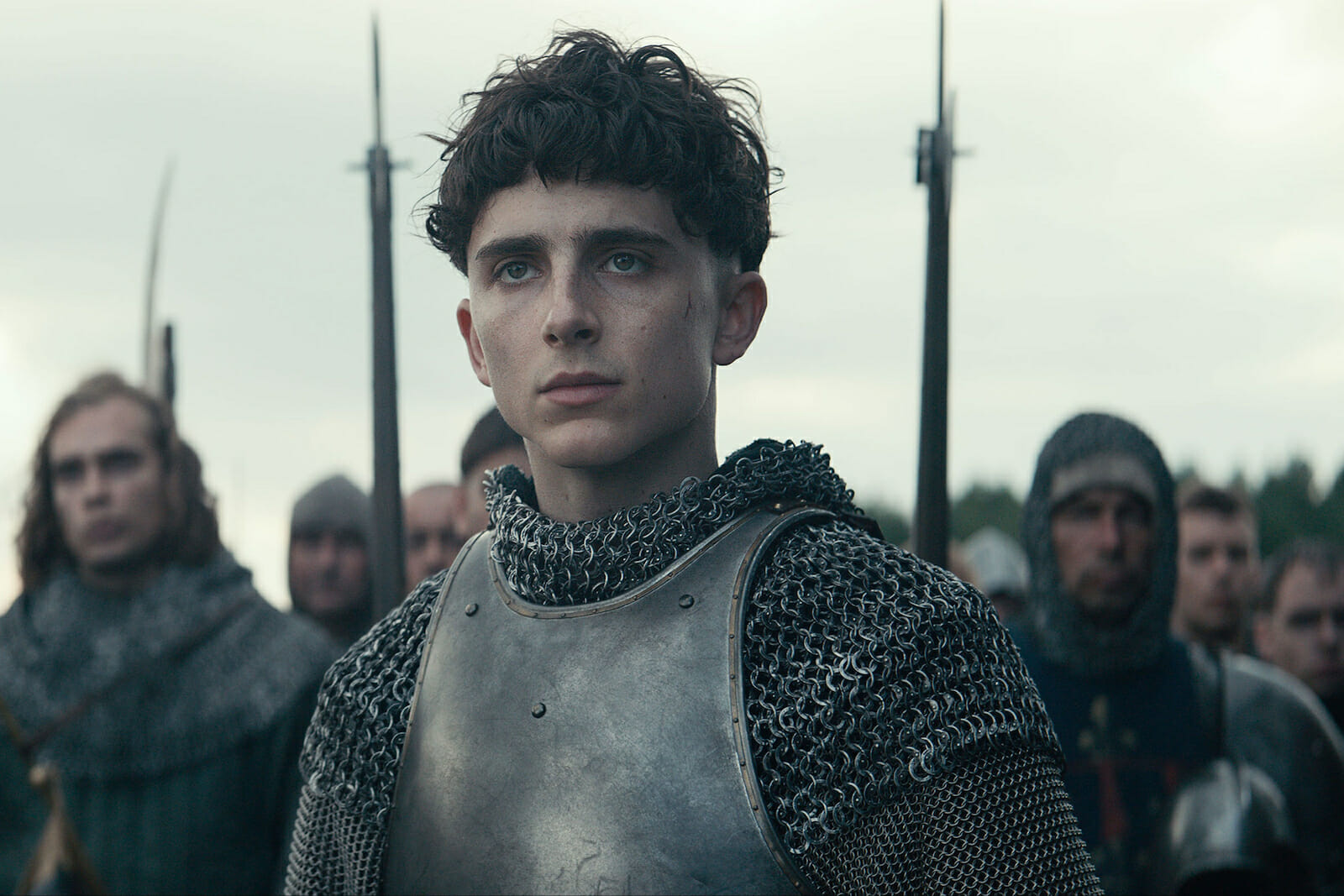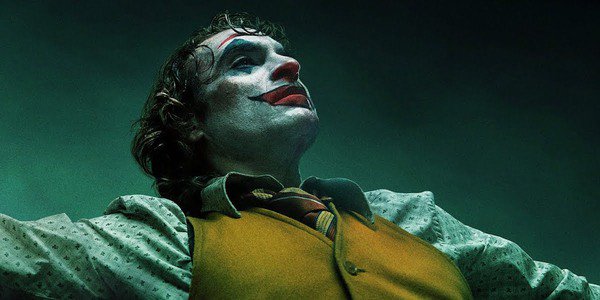King Henry V has fascinated people since the time of his reign, in the 1400s. Shakespeare wrote three plays, the Henriad, about the young ruler. David Michod based The King, which he co-wrote with one of the film’s supporting actors (Joel Edgerton), loosely on the Henriad, as well as some modern sensibilities.
Timothee Chalamet portrays Henry V. The 26-year old inherits the throne of England after the deaths of his demented, old father (Ben Mendelsohn) and his brother (Dean-Charles Chapman). Staying faithful to the Shakespearean text, Henry V is shown to be an alcoholic deadbeat uninterested in politics prior to his coronation (though in reality, the young Henry V was already an accomplished general and politician). His main binge-drinking buddy is the battlefield veteran John Falstaff (Joel Edgerton).
Upon taking the throne, Henry V proclaims that his administration will be much more pacifist than the war-machine administration of his father. Henry V states many times that he has no desire to inherit the blood feuds that his father, out of what Henry dismisses as vanity, started with the House of Percy and Edmund Mortimer. However, Henry’s cabinet strongly opposes this revolutionary dovishness. Chief Justice William (Sean Harris) and the Archbishop of Canterbury (Andrew Havill), among others, urge the young king to make war against King Charles VI (Thibault de Montalembert) and his hilariously cocky son (Robert Pattinson). It isn’t a spoiler to anyone versed in British or French history to reveal that Henry V eventually relents and invades France. This culminates in the film’s climax, the legendary Battle of Agincourt (which is portrayed in muddy, un-chivalrous detail).
What makes this latest portrayal of Henry V unique is its modern take on war and peace. The young king continually laments the human, as well as the financial, cost of warfare. He sees it as the direct result of the pettiness and callousness of politicians (it’s ironic that the “Chief Justice” and a man of God are among the most bloodthirsty people in the English court). Henry’s friend John Falstaff warns that “Nothing stains the soul more than killing.” However, Henry V is eventually corrupted by the medieval version of the Military-Industrial Complex. At the end of the film, there is a false-flag plot reveal that invalidates the official casus belli.
Michod and Edgerton’s anti-war take on the story of Henry V feels refreshingly prescient in this time in world history. There are a lot of correlations between the lead-up to England and France’s Hundred’s Year’s War and that of the Iraq War, in particular. Timothee Chalamet does a good job of portraying the inner conflict that the young king feels about the nature of war. It must be noted however that this is a dramatic departure from Shakespeare’s Henriad, which is itself a greatly exaggerated version of the events of Henry V’s reign. For instance, Joel Edgerton’s character never existed; rather, he was an amalgamation of several different people. In The King, his character is rehabilitated, from being a traitor in Shakespeare’s version to a hero in the film’s. As I wrote earlier, the real-life Henry V was always a ruthless killer, having cut his teeth at a young age fighting against Welsh rebels. So, if you’re a stickler for the purity of Shakespeare’s canon or that of historical accuracy, you should avoid infuriating yourself by watching this film. However, if you enjoy films that interpret the past with modern sensibilities, then you will enjoy this philosophical and action-packed film. Long live The King!
The King is now available on Netflix.
Image Source:*Netflix
Source:intpolicydigest.org









